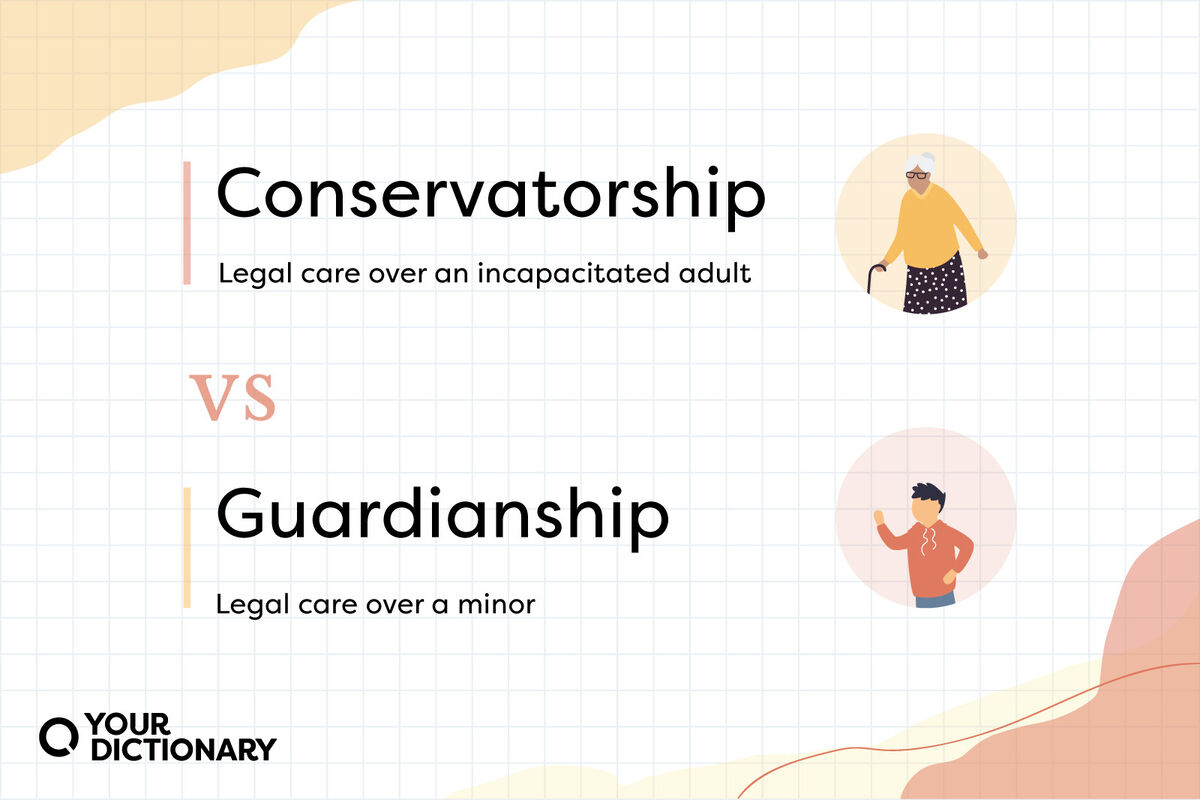
In some states, the terms conservatorship and guardianship are interchangeable. But in others, they’re quite different — they protect different people, they cover different needs, and they’re imposed in different ways. Be sure you’re using the proper terminology with a quick guide to each word.
Conservatorship vs. Guardianship
Being a conservator and a guardian both involve caring for another person. While specific conservatorship laws differ by state, there are a few general details that separate them from guardianships. A few of those details include:
|
Conservatorship |
Guardianship |
|
|
Who Does It Help? |
An incapacitated adult |
A minor child (“ward”) |
|
When Is It Needed? |
When an adult cannot care for themselves |
When no parent is available to care for the child |
|
Responsibilities Include: |
Making financial decisions, handling assets |
Caring for the child’s physical and emotional needs |
|
Can It Be Limited? |
Yes (allows some independence) |
No |
|
When Does It End? |
When a court decides it’s no longer needed |
When a child is adopted or emancipated |
Conservator: Defender
The word conservator comes from the Latin conservator and the Anglo-French conservatour, meaning “an official who protects the interests and rights of another.” Conservators advocate for incapacitated adults in court, manage their financial situation and, in some situations, handle their medical and personal decisions (known as “conservatorship of the person”). One of the most famous (and contentious) conservatorships in recent history was Britney Spears’ conservatorship, which was controlled by her father until 2021.
Times When You’d Need a Conservatorship
When someone requires legal, financial or personal care, a potential caregiver would petition the court to establish a conservatorship. Examples of when a conservatorship may become necessary include:
- An adult child of an aging parent needs the legal ability to handle their parent’s affairs.
- An individual does not have a healthcare directive and they are not able to make their own medical decisions (due to coma or declining health).
- Someone suffers a brain injury or stroke.
- A person has been diagnosed with dementia or Alzheimer’s disease.
- A person is incapacitated due to substance abuse or mental illness.
Each case is different, and may require the guidance of legal authorities in one’s state. But if a court determines that an individual can no longer care for themselves, a conservatorship may be granted.
Guardian: Custodian
Guardian comes from the Old French gardien, meaning “guard” or “custodian.” Its meaning is similar to conservator — in fact, conservators are often called “adult guardians” — but legally, the term guardian often differs in its association with the care of children. If a child’s parent is no longer able to care for them, the court would establish a temporary guardianship for another adult to take the parent’s place, until the parent was able to regain custody, the child is adopted, or the child becomes emancipated (by turning 18 or getting married). And if the child inherited their parents’ estate, they would need a “guardian of the estate” (who may be a separate person).
Times When You’d Need a Guardianship
While the need for a conservatorship may be a matter of legal opinion, there is no argument against a child’s need for guardianship when their parent isn’t available (or if their only custodial parent isn’t available). Examples of when a guardianship may be necessary include:
- The child’s parents have died (or one, if the parent was a single parent).
- The child’s parents have abused or neglected the child.
- The child’s parents are going to drug rehab or jail for an extended period of time.
- The child’s parents are in the military and have been deployed overseas.
- A court has found that the child’s parents are incapable of caring for their child for another reason.
What About Power of Attorney?
The difference between conservatorship, guardianship and power of attorney is that the courts choose a conservator or guardian, while the person in need chooses the person who is assigned power of attorney — the authority to act on one’s behalf in legal, financial and medical matters. In fact, neither a conservatorship nor a guardianship may be necessary if an individual has assigned power of attorney.
One must be of sound mind to assign power of attorney; if a person is already incapacitated, they cannot legally assign power of attorney at that time. That’s when a durable power of attorney comes into effect: It ensures that the power of attorney remains even if a person should become incapacitated in some way.
Improve Vocabulary Beyond a Reasonable Doubt
Want to ensure you’re using legal terms correctly? You won’t find any objections here. Check out: